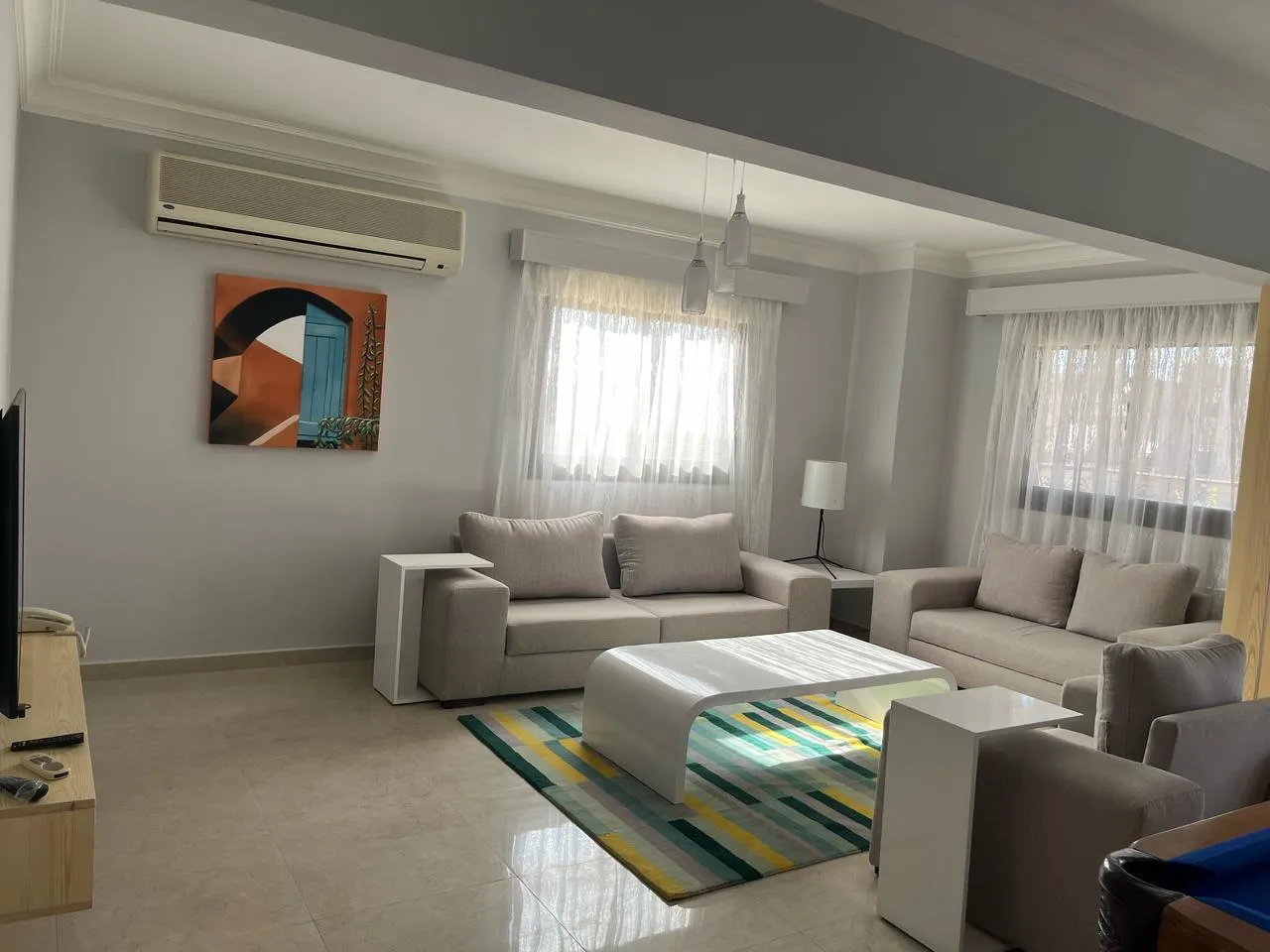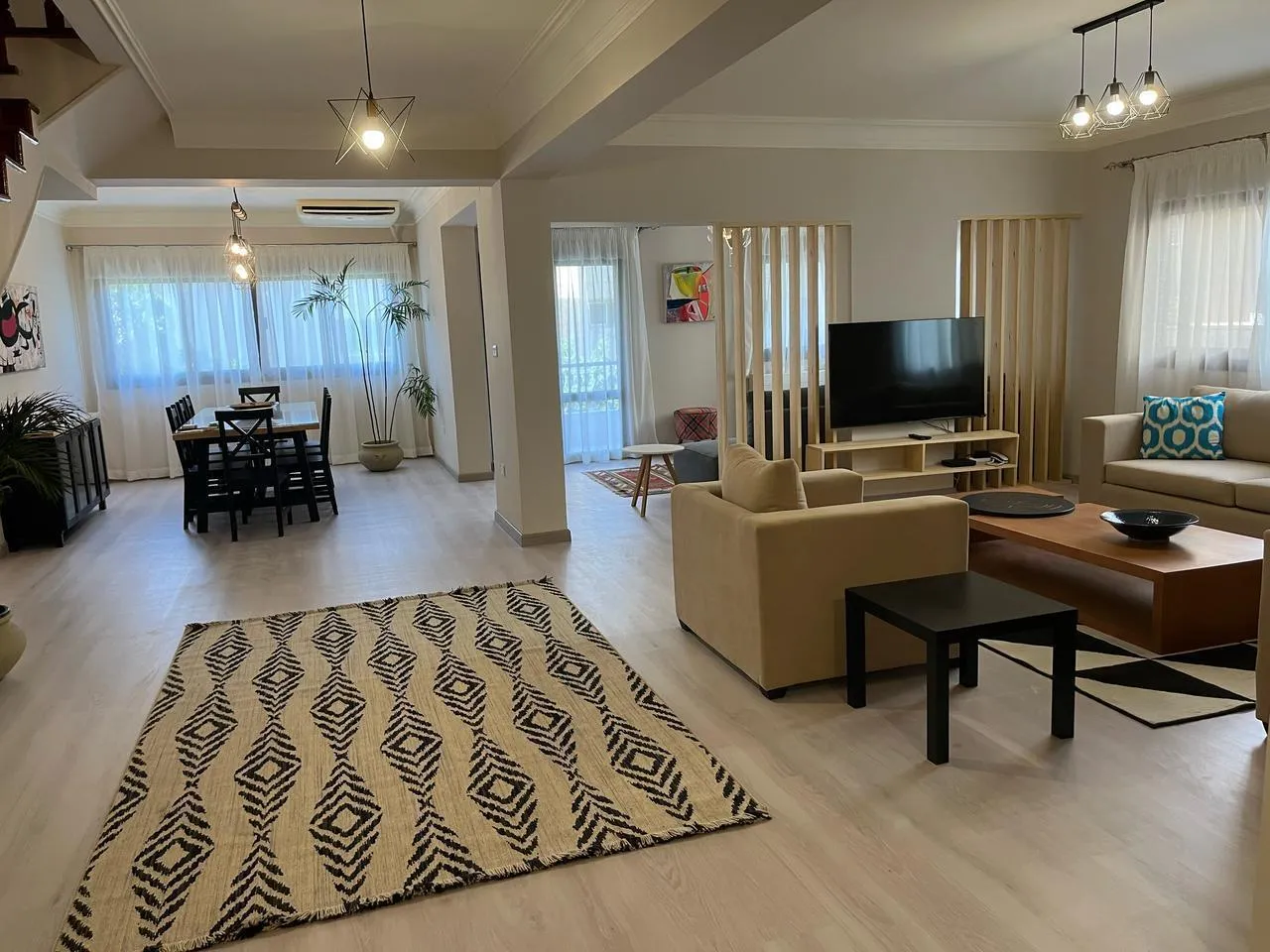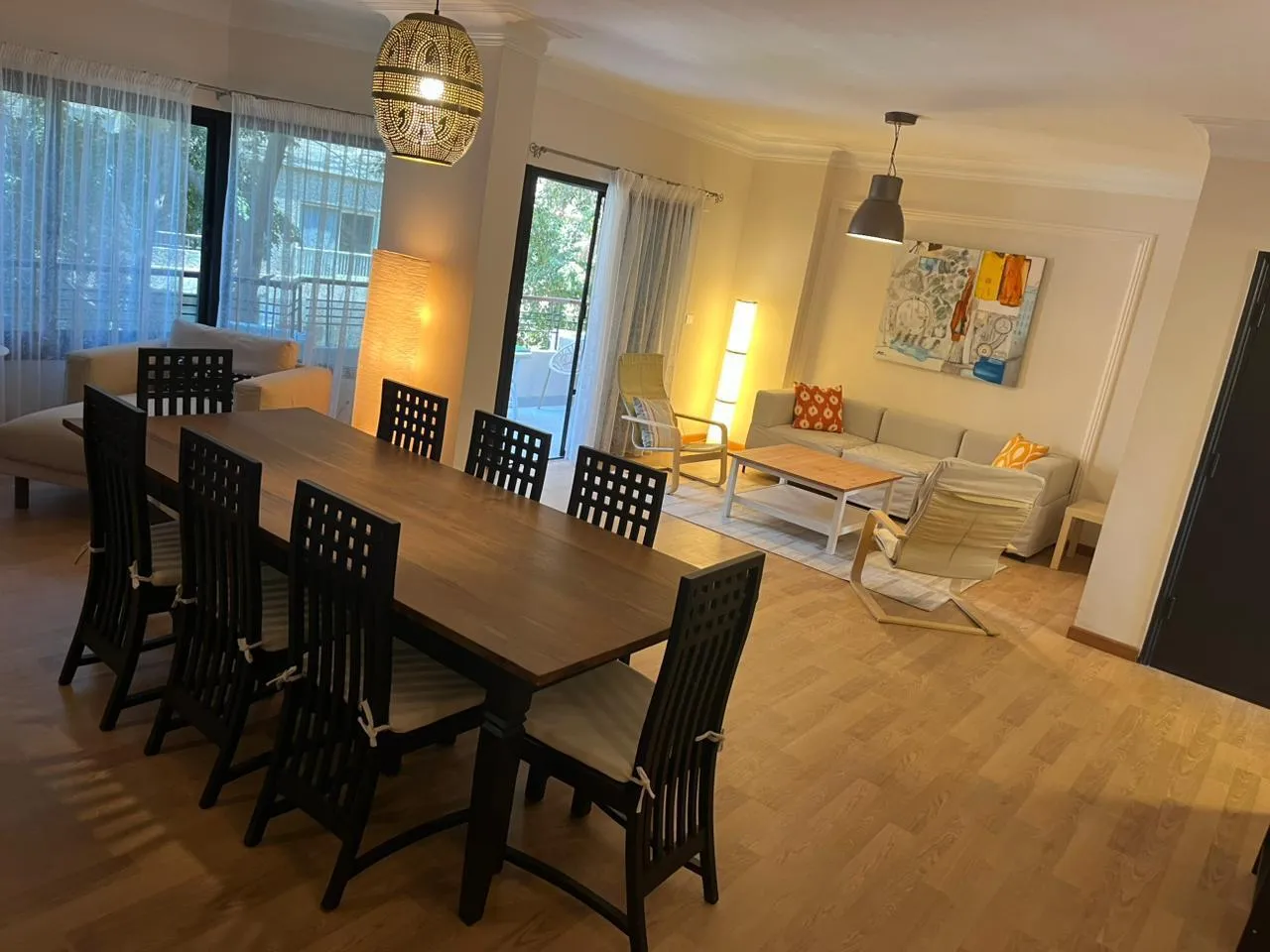The Renting Revolution: 7 Persuasive Reasons Why Renting May Outshine Home Ownership
الكاتب
Ali Ashour
الوقت
17 دقيقة
اللغة
الانجليزية
كتبت بتاريخ:
4/8/2024
تم التحديث:
4/9/2024
The Renting Revolution: 7 Persuasive Reasons Why Renting May Outshine Home Ownership
Choosing between renting and buying a home is a significant decision that influences not just your finances but also your lifestyle and future prospects. While homeownership offers stability and a sense of community, renting presents a less binding commitment, often making it an appealing choice for those seeking flexibility and minimal long-term responsibilities. The debate on renting versus buying continues, hinging on various factors including financial readiness, job security, and personal goals, with each option presenting distinct advantages and challenges dependent on individual circumstances and the housing market.

In the realm of real estate, understanding the pros and cons of renting is crucial. Renting can often be perceived as the more convenient option, offering benefits such as lower upfront costs, fewer maintenance responsibilities, and access to amenities that might not be feasible through homeownership in certain markets. With the landscape of rentals evolving, from short-term rental options to rental apartment complexes in prime locations like Maadi Cairo or through services like House Point Egypt, the renting revolution is redefining how people view property leasing and the traditional path to owning a home.
Limited Financial Risk
Renting offers a significantly reduced level of financial risk compared to homeownership, primarily because renters aren't tied down by the fluctuating values of property or the burdens of a mortgage in an unstable market. This aspect of renting is particularly appealing in volatile economic times when the value of properties can plummet, leaving homeowners with depreciated assets and potentially upside-down mortgages. Conversely, renters can maintain a level of financial agility, unburdened by such depreciations.
- Market Fluctuations: Renters are less exposed to the risks associated with a potential decline in property value. While homeowners may benefit from property appreciation, they also face the risk of depreciation, which can significantly impact their financial stability.
- Costs and Liabilities: Renting eliminates many of the costs associated with homeownership, such as maintenance and repair expenses. Rental agreements often include maintenance services, reducing unexpected financial burdens on the renter. Additionally, renting does not involve the same level of tax liabilities, insurance, and finance charges that come with owning a home.
- Flexibility and Mobility: The renting model offers flexibility, allowing renters to adapt to market changes more swiftly than homeowners. This is especially beneficial for businesses renting equipment, as it provides options to scale up or down based on current needs without the financial strain of purchasing and maintaining a fleet of machinery.
Renting, therefore, serves as a buffer against the unpredictable nature of the real estate and equipment markets, offering both individuals and businesses a way to mitigate financial risk and maintain operational flexibility.
Lower Upfront Costs
When considering the financial implications of renting versus buying, one of the most compelling advantages of renting is the significantly lower upfront costs involved. This aspect of renting offers substantial financial flexibility, particularly attractive to those not ready or unable to commit a large sum of money at the outset.
- Initial Costs for Renters:
- Security Deposit: Typically equal to one month's rent.
- First Month's Rent: Required at lease signing.
- Additional Fees: May include application, credit check, and background check fees, plus a pet deposit if applicable.
- Example: Total cash needed to move into an apartment can be up to $4,926.
- Initial Costs for Homebuyers:
- Down Payment: Ranges from zero (for specific loan types like USDA and VA) to 3.5% for FHA loans. For a $200,000 property with a 3% down payment, this equates to $6,000.
- Closing Costs: Can be offset through lender credits, seller contributions, or government programs.
This stark contrast in upfront financial requirements makes renting an appealing option for individuals seeking to minimize initial expenses. Renters enjoy the freedom to relocate without the burden of selling a property, further underscoring the flexibility and reduced financial strain associated with renting.
More Flexibility & Mobility
Renting stands out as a beacon of flexibility and mobility, offering a stark contrast to the fixed nature of homeownership. This advantage is particularly evident in several key areas:

- Ease of Movement: Renters enjoy the unparalleled benefit of being able to move with ease, whether due to job relocations, a desire to explore new neighborhoods, or the pursuit of better opportunities. The absence of the need to sell a property before moving significantly reduces the time and financial burden associated with relocation.
- Adaptability to Life Changes: Life is unpredictable, and renting accommodates this reality beautifully. Whether it's adjusting to a growing family, downsizing, or simply seeking a change of scenery, renters can modify their living situation at the end of their lease without the complexities and costs tied to selling a home.
- Living Location Options: The freedom to live practically anywhere without the long-term financial commitment of buying means renters can reside in areas that align with their current financial situation or lifestyle preferences. This flexibility extends to the ability to downsize to more affordable living spaces as needed, an option that homeowners may find challenging and costly due to fees and market conditions.
These factors collectively underscore renting as a strategic choice for those valuing freedom, mobility, and the ability to adapt to life's ever-changing circumstances.
Fewer Maintenance Responsibilities
One of the standout advantages of renting over homeownership is the significant reduction in maintenance responsibilities and costs. This difference is starkly evident when comparing the obligations of renters and homeowners:
- Renters:
- Not responsible for property taxes, homeowners insurance, or maintenance costs.
- Landlords handle all maintenance and repairs, including plumbing, electrical, HVAC, and appliances.
- On-site maintenance services often ensure prompt resolutions, enhancing tenant satisfaction.
- Normal wear and tear fall under the landlord's jurisdiction, not the tenant's.
- Homeowners:
- Bear the full brunt of all repair, maintenance, and renovation costs.
- Responsible for property maintenance including structural repairs, plumbing, electrical systems, and safety features like smoke alarms and carbon monoxide detectors.
- Must manage and finance pest control, dampness, visible mold, and ensure adequate ventilation and lighting.
The contrast is clear: renters enjoy a hands-off approach to property maintenance, with landlords or property managers coordinating all necessary activities. This arrangement frees renters from the unpredictability and potential high costs associated with home repairs and upkeep, providing them with peace of mind and financial predictability.
Tax Benefits of Renting
Renting can offer several tax benefits that are not immediately obvious but can have a significant impact on a renter's financial health. These benefits range from deductions for real estate taxes included in rent to specific credits for using a portion of a rental home as a business space. Here's a closer look at some of these advantages:
- Real Estate Tax Deductions and Credits:
- Renters can deduct the portion of real estate taxes paid through their rent.
- Some states provide a tax credit based on the estimated rent charged by landlords to cover property taxes, easing the financial burden on renters.
- Deductions for Home Office and Disaster Loss:
- If using part of the rental property as a principal place of business, renters may qualify for the home office deduction, calculated either through a simplified or regular method based on the office space size.
- Property losses from federally declared natural disasters can also be deducted, offering financial relief in difficult times.
- Educational and Business Deductions:
- Renters in college can claim the American Opportunity Credit or Lifetime Learning Credit, and up to $2,500 for student loan interest payments.
- Self-employed renters have the advantage of deducting necessary business expenses, further reducing their taxable income.
These tax benefits highlight the financial advantages of renting, offering savings through various deductions and credits that directly impact a renter's annual tax obligations.
Easier to Qualify for a Lease
Qualifying for a lease involves several critical factors that landlords consider to ensure they select reliable tenants. This process is structured to assess the financial reliability and overall suitability of applicants, focusing on their ability to maintain timely rent payments and adhere to lease terms. Here are the key components evaluated during the application process:

- Financial and Background Checks:
- Credit History and ResidentScore: A healthy credit history and a favorable ResidentScore suggest a high likelihood of timely rent payments.
- Income Verification: Applicants must typically earn three times the rent amount, serving as a benchmark for financial stability.
- Employment History: A steady job history strengthens an applicant's case by indicating a stable source of income.
- Past Rental and Legal History:
- Eviction Records: A clean eviction history signals a responsible tenant, whereas a history of evictions can be a red flag.
- Criminal Background: A clean criminal record is essential, with nearly 1 in 5 applicants in 2015 having an illegal record.
- Landlord References: Positive feedback from previous landlords can significantly boost an applicant's chances.
Landlords also have the right to deny applicants based on specific criteria, such as poor credit history, past evictions, or negative references, as long as these criteria comply with fair housing laws. In some cases, a guarantor might be required for those who fall short of the credit requirements. Additionally, the application process may include an OFAC search, and applicants listed may face automatic denial. This thorough vetting process ensures that landlords can make informed decisions, balancing the need to fill vacancies with the imperative to select tenants who will be financially reliable and respectful of property rules.
Access to Amenities & Services
Access to top-tier amenities and services is a standout advantage of renting, often tipping the scales in favor of leasing over home ownership for many. Here's a closer look at the types of amenities and services renters can enjoy, often without additional charges:
In-Unit Amenities:
- Upgraded Kitchens: Modern appliances and finishes.
- Smart Home Features: Including automated systems for lighting and temperature control.
- Private Outdoor Space: Balconies or patios for personal enjoyment.
- Convenience Features: In-unit washers and dryers, air conditioning, and dishwashers.
Community Amenities:
- Health and Wellness: Fitness centers, yoga/cardio rooms, and swimming pools.
- Recreational Spaces: Community gardens, barbecue areas, firepits, and rooftop lounges.
- Pet-Friendly Facilities: Pet washing stations and dog parks.
- Security and Maintenance: Gated communities with security guards/doormen and online maintenance requests.
Additional Services:
- Connectivity: High-speed internet access to cater to work and entertainment needs.
- Transportation: Secured garage parking, bike storage, and electric vehicle charging stations.
- Convenience: On-site laundry facilities, package lockers, and community events/classes.
These amenities and services significantly enhance the quality of life for renters, providing luxury and convenience often unattainable in the realm of homeownership without significant financial and maintenance commitments.
Conclusion
Through the exploration of the multifaceted benefits that renting can offer, it becomes apparent that the choice between renting and buying a home extends far beyond mere financial calculations to encompass lifestyle preferences, flexibility, and personal circumstances. This article has illuminated the renting revolution, underscoring the significant advantages that include mitigating financial risks, enjoying lower upfront costs, as well as the flexibility and mobility afforded to renters. Furthermore, the minimized maintenance responsibilities, potential tax benefits, easier qualification processes for leases, and access to a variety of amenities and services collectively enhance the appeal of renting as a viable and attractive option for many.
As we reflect on the inherent values and conveniences that the renting model brings to the modern age, it's clear that this option holds a definitive and strategic place in the contemporary living landscape. For those aspiring to navigate the complexities of today's real estate market with grace and minimal burden, renting emerges not just as a temporary solution, but as a lifestyle choice that aligns with the evolving priorities and desires of a diverse populace. Amidst the dynamic nature of housing markets and individual life paths, renting stands out as a path that offers freedom, flexibility, and fiscal prudence, marking a significant shift in traditional perceptions of home and stability.






